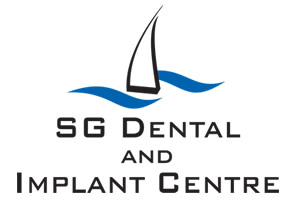What Causes Morning Breath, And Bad Breath During The Rest Of The Day?
How poor oral health care plays a role in us having ‘smelly breath’.
The team of Burton On Trent dentists at Mike Allen’s Dental Practice quite frequently treat patients who have bad breath during their appointments. It’s a real concern for some patients and it’s far from uncommon. However, we are here to help and there is no need to feel embarrassed.
Whilst most of us suffer from morning breath to some extent or another, and it’s a common issue, there’s no reason why this can’t be resolved with a better oral hygiene routine and regular check-ups with our Staffordshire dentists, along with ongoing cleaning by our hygienist every six months or so.
The information below should help to ease the worries of our patients and blog readers, whilst also providing simple and practical help with halitosis.
What are the main causes of bad breath?
The technical term for bad breath is halitosis, and there are a number of causes of it, including:
Food – the breakdown of food we eat increases bacteria levels and can cause odours to develop.
Tobacco – smoking causes unpleasant odours in the mouth, leading to bad breath issues.
Poor oral hygiene – brushing teeth twice a day, with thorough flossing and regular check-ups, are all essential in reducing halitosis-related problems.
Dry mouth – taking certain medications, for example, can cause a dry mouth which is a contributing factor for smelly breath in certain people.
Infections – tooth, gum, throat, nose and mouth infections can all contribute to an increase in poor breath quality.
Is there a link between halitosis and gum disease?
According to the NHS, there is a link between halitosis and gum disease and this certainly makes sense; any problems with the gums is also likely to cause bad breath to become an additional issue. The most common cause of gum disease is not brushing teeth regularly or for long enough to remove the build-up of accumulated bacteria. This combines with saliva to form plaque, and if thorough brushing is not maintained daily, plaque levels can increase, leading to gum disease and bad breath problems as a result.
Proper brushing and flossing of teeth should help to reduce the possibility of gum disease occurring for most patients, and maintaining good oral health is the best way to reduce both halitosis and gum disease.
How does periodontitis affect bad breath issues?
Our team of dentists in Burton are on-hand to guide and advise patients on breath-related problems. Periodontitis can certainly lead to bad breath.
Periodontitis can lead to gums being inflamed, and is caused by bacteria called periodontal bacteria. Early warning signs include bleeding gums when teeth are brushed, red swollen and tender gums, as well as bad breath. Worse-case scenarios include oral surgery in the form of a deep clean to deal with areas badly affected by periodontitis, although some relatively minor cases of gingivitis can be reduced or removed by good oral care and regular dental check-ups.
What are the main causes of it during the day?
The main causes of bad breath during the day are largely down to diet and oral hygiene. The main causes of bad breath, as listed at the start of this article, also highlight areas where people can reduce or remove the problem. By being careful about the types of food eaten, and the oral hygiene routine used on a daily basis, it is possible to gain a higher level of oral health on an ongoing basis, as well as having no halitosis issues throughout the day.
How can you reduce morning breath?
Because odour-causing bacteria accumulate on the mouth, teeth and tongue overnight, we will all have morning breath to some extent. It is inevitable. The best way to reduce it for the day ahead is by thorough cleaning – at least two minutes worth after breakfast, to ensure a clean and healthy mouth and gums.
Is there any way to prevent bad breath during the day?
Our dentists recommend that sensible and balanced choices around food and diet are a great way to help reduce and possibly prevent it. Eating fresh fruit and vegetables daily, daily brushing and flossing, as well as drinking plenty of fluids, all helps to improve oral health for most people.
What can a dentist do about halitosis, gum disease and periodontitis?
In terms of monitoring oral health at home and reducing the likelihood of the above problems, our team of local dentists recommend that patients have regular visits and oral examinations with us. It is also important to carefully monitor the overall condition of the mouth, tongue, teeth and gums so that any problems can be spotted early on.
As with many medical issues, prevention is often the best solution, and this is the same with halitosis, gum disease and periodontitis.
To find out more about the range of dentist services we offer, please get in touch today on 01283 845345. To read other blog posts our dental team in Staffordshire have written recently, please visit here.
To find out more about bad breath issues and how we can help you if suffering from it, please call our Burton dental clinic on 01283 845345 and mention this blog post.
